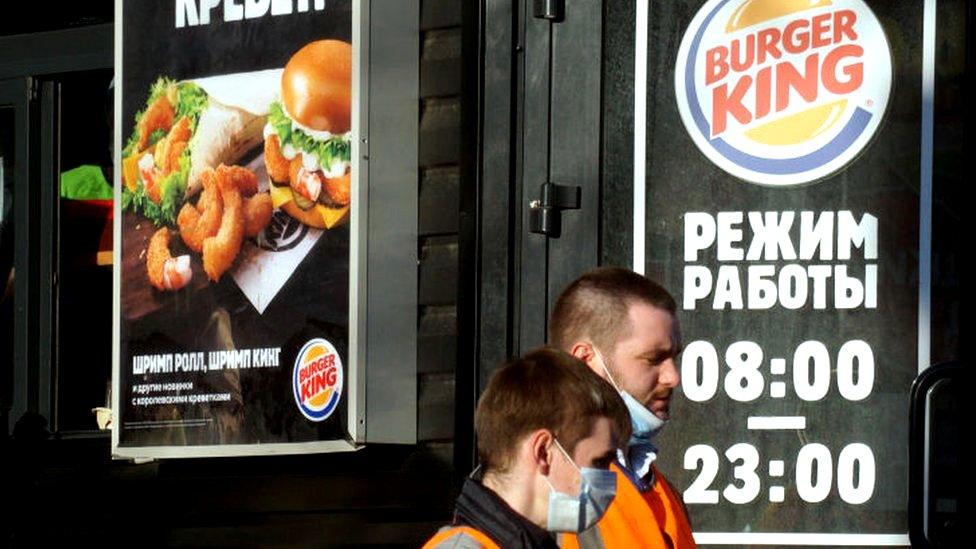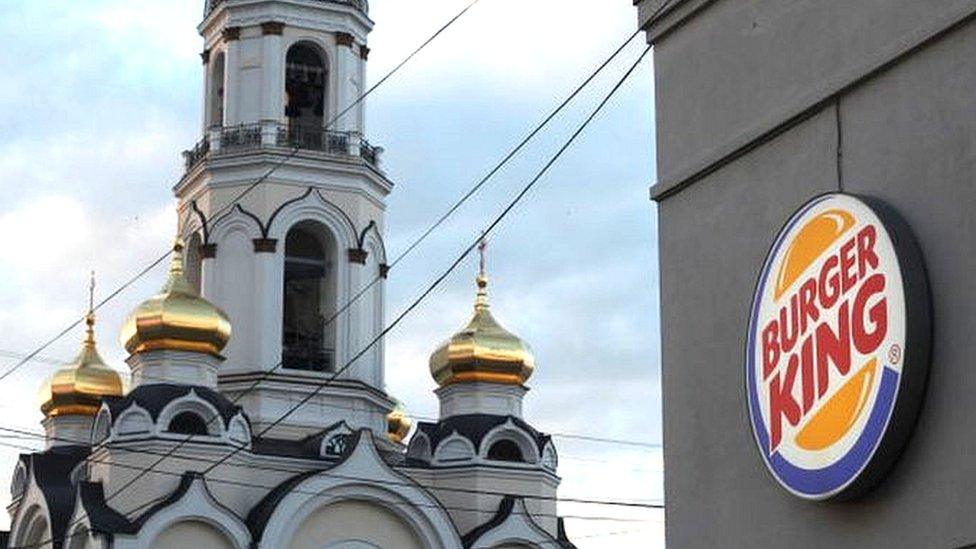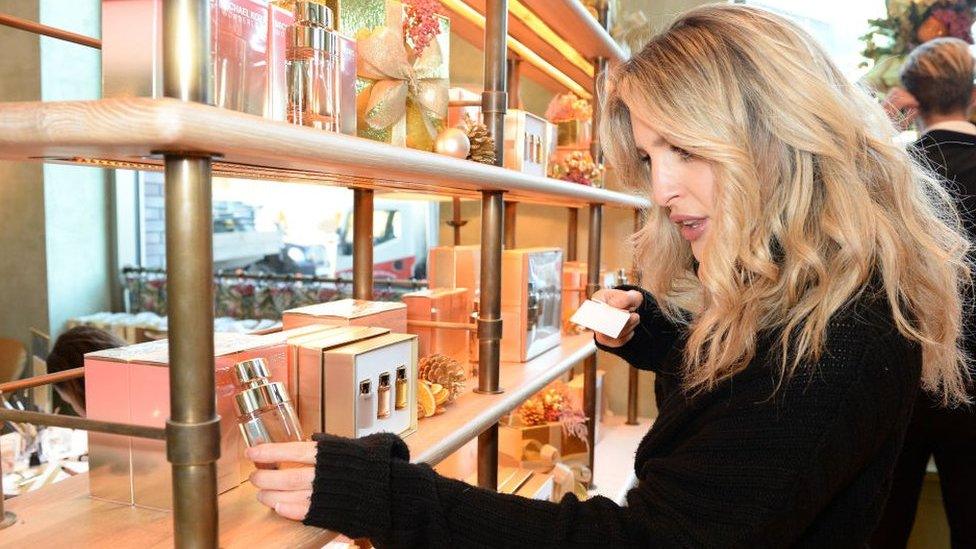Burger King Russia partner 'refuses' to shut shops
- Published
- comments

Burger King has 800 stores in Russia
The owner of Burger King said the operator of its 800 stores in Russia has "refused" to close the sites despite demands to suspend trading.
Restaurant Brands said it had contacted local partner, Alexander Kolobov, to shut the shops amid the war in Ukraine.
But it said "complicated" contracts with overseas partners mean it is unable to "walk away" from these deals.
Mr Kolobov told the BBC he does not have the "authority or power" to stop Burger King operations in Russia.
But he said any closure must be approved by all investors in the business.
"The decision to terminate and suspend operations of the franchisee which employs about 25,000 persons must be taken by all shareholders considering impact it may have on the employees and their families," he said.
Many Western firms have shut or suspended their Russian businesses because of the country's invasion of Ukraine.
However a small number, including Burger King and UK retailer Marks and Spencer (M&S), have been unable to do so because their stores are run by franchise partners under "complex" legal arrangements.
In a letter to staff, external, Restaurant Brands International president David Shear said: "We contacted the main operator of the business and demanded the suspension of Burger King restaurant operations in Russia.
"He has refused to do so."
Mr Shear added that making any changes to its local Burger King business "would ultimately require the support of Russian authorities on the ground and we know that will not practically happen anytime soon".
Burger King entered the Russian market 10 years ago. It trades there through a joint venture partnership with Mr Kolobov - who is the main day-to-day operator of the business - as well as with Russia's VTB Capital and a Ukrainian investment firm.
VTB Capital is an affiliate of VTB Bank, Russia's second largest financial institution which has been sanctioned by the US, UK and other European countries.
Mr Kolobov said he owns a 30% stake in the joint venture."Since the date of the establishment (of) the joint venture-franchisee... my share has always been far below control," he said.
Mr Shear said Restaurant Brands owns a minority stake of 15% in the Russian joint venture which it is in the process of unwinding.
"While we would like to do this immediately, it is clear that it will take some time to do so based on the terms of our existing joint venture agreement," he said.
Restaurant Brands has stopped supporting the supply chain, operations and marketing for Russia. It will also reject new pitches for investment and expansion in Russia.
Western companies remain under pressure to withdraw from Russia following its attack on Ukraine. On Thursday, a group of four Ukrainian MPs highlighted to UK prime minister Boris Johnson that M&S is still open in Russia.
Allow X content?
This article contains content provided by X. We ask for your permission before anything is loaded, as they may be using cookies and other technologies. You may want to read X’s cookie policy, external and privacy policy, external before accepting. To view this content choose ‘accept and continue’.
MP Alona Shkrum said: "It is very important to put Putin in isolation and for him to know he will not be getting a handshake from the world, he will not be getting a handshake from business, there will be no support for him because he has killed children in Ukraine."
Complex franchise agreements have prevented some Western brands from shutting their stores in Russia. They have, however, publicly shunned the country over its invasion of Ukraine.
Marks & Spencer stores are operated by a Turkish company called FiBA, which has held the rights to sell the retailer's products across Eastern Europe, since 1999.
M&S said it has suspended shipments of its goods to FiBA which runs Marks' 48 stores in Russia.
Meanwhile, German carmaker Audi has warned that the war in Ukraine will cause "tremendous interference" to supply chains.
"We will see tremendous interference with all the supply chains, not just the chip business, but any supply chains internationally," said Audi executive Hildegard Wortmann.

You may also be interested in:
White fish, potatoes, peas and the energy to cook them with have all sky-rocketed in price.
Related topics
- Published16 March 2022

- Published11 March 2022
